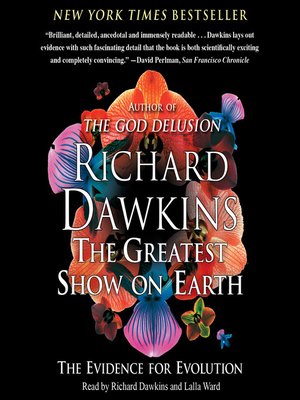


Despite all this, Darwin found arguments which soon convinced a large part of his audience that their ideas about Young Earth Creationism were wrong.ĭawkins continually quotes Darwin.


Darwin had a great deal of sympathy for the Creationist position, and one of his own favorite books, which influenced him deeply, was the Creationist classic Natural Theology, by William Paley. When Darwin wrote it, pretty much everyone in the world was a Young Earth Creationist. Instead, I suggest that you might want to look at Charles Darwin's On the Origin of Species. Dawkins is disrespectful and arrogant about Young Earth Creationism, and he will only annoy you. In fact, I'm not going to do that.ĭon't read this book. You're probably expecting I'll tell you to read Dawkins's latest book. It's to your credit: you're willing to find out something about what the other side has to say. All of a sudden the reader is challenged, perspectives shift, and this is a book to delight, to inform, but in the end to warn: things change, and humans will eventually die out, leaving their mess behind.To any Young Earth Creationist who happens to be reading this reviewįirst, thank you for getting this far. Humanity arrives, thinks itself in charge and then is gone, and the bugs that preceded us are left to carry on the story, putting on their show in the post-human era, on the gradually rewilding rubbish tips (look out for the larger animals on the edge of the wood). All sorts of human rubbish helps tell the story, which is riotous as well as educational: these bugs can tell a tale! And only when we reach the humans - blink and you’ll miss them - did I start to see that this was a show for the creatures who survive. I can’t review this without spoilers because the final pages pull the rug out from under this reader at least.Ī troupe of actors - all bugs drawn in Mini Grey’s best Carnival style - are putting together a show illustrating the history of the Earth from start to - well, the day of the show.


 0 kommentar(er)
0 kommentar(er)
